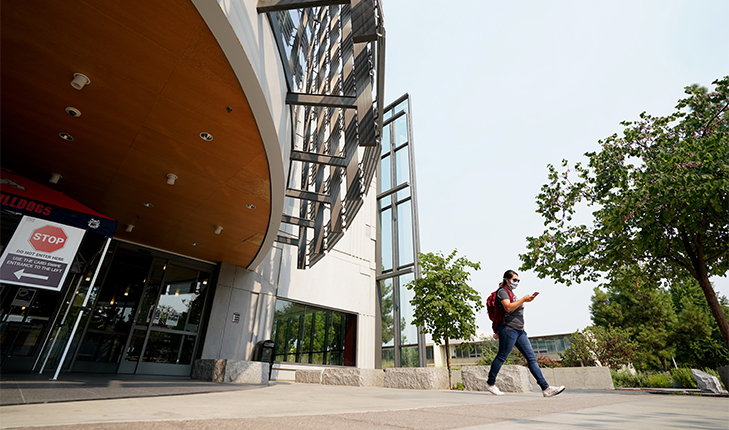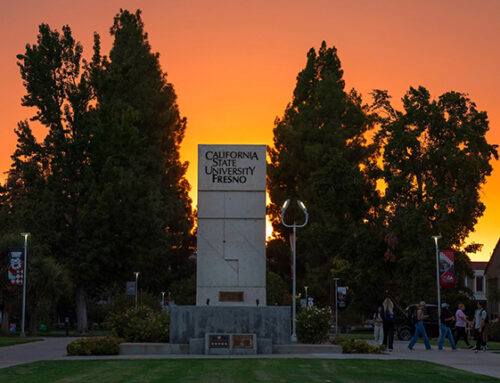After Dog Days new student orientation the summer before Raul Villar transferred to Fresno State, he immediately applied for the TRiO Student Support Services Program. As a first-generation, low-income student, Villar knew he would need help navigating through his undergraduate career at the University.
TRiO Student Support Services is a federally-funded grant program under the U.S. Department of Education to help first-generation students, those from low-income backgrounds and students with a disability. TRiO provides academic tutoring, financial aid literacy, career and college mentoring and other forms of assistance to enhance academic success.
Of all the services, Villar said two stand out the most — the peer mentorship and a workshop that inspired him to study abroad. Villar, a Kerman native and senior communication studies major, spent the first half of spring 2020 studying in the United Kingdom until the COVID-19 pandemic forced study abroad students to return home early.
“I loved being in that environment, where students are there to succeed,” Villar said. “This program definitely made a difference in my academic career. I can’t thank them enough for all their support on campus.”
In the latest grant cycle, all three of Fresno State’s TRiO Student Support Services Programs received a total of $4.3 million from the U.S. Department of Education, and was renewed for another five years to help more students succeed and graduate from college.
The TRIO Student Support Services-General program at Fresno State, now in its 26th year, received $1.74 million. The others, Student Support Services-Veterans and Student Support Services-Disabilities, each received $1.3 million and are both in their sixth year. During the 2018-19 academic year, all three programs served a total of 472 students.
“We are so thrilled to continue our student support services to TRiO students,” said Dr. Tamera Pullins, the associate vice president for Student Success Services who oversees the general and veterans programs grant shares. “Supporting our first-generation and veteran students via academic support, textbook lending, individual mentoring and skills workshops is important to us. Those services help students stay on track to graduate in a timely manner and save thousands of dollars in tuition, as well as get started in their career fields sooner rather than later. We look forward to the hundreds of relationships we will build in the next five years and are grateful for the opportunity to serve.”
Congress created the Student Support Services in 1968, and it is one of eight federal TRiO programs authorized by the Higher Education Act to help college students. It recognizes that students whose parents do not have a college degree have more difficulties navigating the complexity of decisions that college requires for success; it bolsters students from low-income families who have not had the academic opportunities that their college peers have had; and helps students with disabilities remove obstacles preventing them from thriving academically.
“We take pride in our services and will continue to be committed to excellence,” said Luis Flores, director of the Student Support Services-Disabilities program. “We are excited to serve and advocate for students with disabilities while working with our Services for Students with Disabilities office and our campus community to give our students an equitable learning experience.”





